The Takeshi Kitano Collection
Maybe the Japanese are totally cool with genre-shifting chameleons like Takeshi Kitano. As a reviewer, it's a strange and uncomfortable feeling indeed to deal with a collection of films that have little to gel them together other than the assurance that one man is responsible for writing, producing and directing them all . Meet Takeshi Kitano. Comedian, outsider and proponent of extreme violence and occasional misogyny. Yes - similar in many respects to Takeshi Miike, frequently ultra-violent and often delivered with dark humour ('Violent Cop' may not be as surreal as 'Gozu' for example, but they're clearly from the same mad stable).
I first saw 'Beat' Takeshi in 'Merry Christmas Mr. Lawrence' playing alongside David Bowie and Ryuchi Sakamoto. Since then, many in the UK may know him best for his 2003 writer-director remake hit, 'Zatoichi' - a period piece featuring a master swordsman played by Kitano himself or for the role of 'Kitano' in 'Battle Royale' (2000).
This collection houses together six of his earliest features; an eclectic mix of humour, violence and philosophy - and all tremendously entertaining - Violent Cop (1989), Boiling Point (1990), A Scene at the Sea (1991), Sonatine (1993), Getting Any? (1995) and Kids Return (1996).
Four of the six could loosely be described as Yakuza pictures, though none are straight-forward. The other two are gently comic drawing an affectionate look at pockets of life reminding me, in my quest to find a useful comparison for you, of socio-comedies like 'The Full Monty' or 'Brassed Off'.
VIOLENT COP (1989)
This gently paced debut really sets out Kitano's stall. Full of dark humour (long 'Stan Laurel' like looks to the camera etc), ultra violence and extreme sex, this is not a film for the whole family. One example of the extreme violence that had me turning away from the screen was the slow motion battering of a man around the head with a baseball bat in front of several young children - turning a standard Yakuza moment into something far more charged.
The violence in the film feels horribly real too. Like the continuous 'slapping' in the rest-room of a suspect until his cheeks were red raw. No CGI here. So I can only assume that the slaps were real - which adds another uncomfortable edge to the film.
Kitano plays an outsider cop with a reputation for violence. He becomes embroiled in a depressing battle with a psycho-killer gangster who has kidnapped Kitano's sister - who has learning difficulties - and who is subject to the gangster gangs sexual whims. Kitano's character remains solidly calm, but you know that vengeance will be his.
It's a simply shot film, frequently slow paced and offers up a gritty realism that would become a trademark.
BOILING POINT (1990)
This is a strange film that starts in a baseball field and ends with multiple murders. There are plenty of long static shots where people's reactions after an event often define the length of a shot. So when something goes wrong, the long 'Stan Laurel' stare that follows is all included, giving the film a gentle, realistic pace. There is little music in the film. It actually opens with just atmos sound.
It's notable here that Kitano is no longer the 'lead'. He plays a complex psychopath akin to Dennis Hopper's character in 'Blue Velvet' where his unpredictability makes him sinister indeed.
The story kicks off with a kid who's as good at baseball as Charlie Brown. But he's determined to make the team and practices his swing obsessively. The film really starts as a gentle comedy with a couple observing the match having a tiff - all played for maximum laughs.
But then things get weird. Working in a car wash the kid punches an arrogant would-be Yazuka and lands his employers in trouble. Things start to get out of hand and the kid decides to settle things by going to Okinawa to buy a gun.
Then things start to get REALLY weird. Enter Kitano as a mad unpredictable psychopath. Though he gets the gun he also gets a glimpse of brutal murder, misogyny and weird sex.
The third part of the film show the kid and his mate return with the gun - and cleaning up the streets in a violent shoot out.
The result is a film that is darkly unsettling though not devoid of humour. Fascinating and one that will definitely benefit from repeated viewings.
A SCENE AT THE SEA (1991)
For his third film Kitano changes gear entirely. This is the story of a deaf and mute garbage collector who rises out of his limitations to reinvent himself as a very cool surfer dude.
Kitano doesn't appear in the movie himself and there's no sign of the extreme Yakuza violence of the previous two.
He also sets himself a challenge. The principle is unable to speak and has a strange relationship with his disabled girlfriend. The two are cruelly bullied and shunned by able bodied people - again the theme of an outsider making good against the odds.
When our 'hero' finds an old board he sets about repairing it and begins to (tentatively) learn to surf. Eventually he saves up for a new one and a local shop manager, seeing the struggle to succeed, donates a proper wetsuit. Soon he is entering competitions - and looking good.
It's a surprisingly straight forward tale - though some of the ambiguities at the end of the film mean that it never quite descends to Disney schmaltz.
SONATINE (1993)
Sonatine seems to thematically pick up where 'Boiling Point' left off. We get the same structure with three by now identifiable segments. Firstly - the Yakuza scenesetter, secondly the Lynchian descent into Freudian surrealism and finally vengeance and violence.
Kitano returns as the main man (as in 'Violent Cop'). Murakawa is a Yakuza big-shot who's reputation is failing. Following a shootout he and his gang go into hiding at the seaside. It's there that they act out their childish, escapist fantasies, almost in denial for the inevitable show down that must (and does) follow.
It's a dark and thought provoking piece.
GETTING ANY? (1995)
So where next? How does 'Carry On' sound? Or maybe some Zucker brothers hilarity? It's certainly an odd watch - frequently childish, often absurd and always with that residing feeling that something must surely be getting lost in translation.
Full of slapstick absurdities, 'Getting Any?' grates. It seems out of whack with the previous films which may have been Kitano's intention. After all - Kitano is also a regular TV entertainer on cheesy quiz shows in Japan which are also difficult to tally with his depthier work.
The story revolves around a nerd's pursuit of sex - and the absurd lengths he's prepared to go to get the fast car which he believes will get him the sexual attention he craves. But it's a catalogue of slapstick failures that on paper may sound like early Woody Allen but in reality feel more like The Krankies.
Still - the scene with our hero dressed as a fly on a giant turd is certainly memorable if not exactly funny.
KIDS RETURN (1996)
'Kids Return' is directed and written by Kitano - but he doesn't play in the movie himself.
I didn't know what to expect after 'Getting Any?' but whatever I was expecting - it wasn't this.
It's a strange film about two disaffected students who start playing jokes and bullying other children to break the tedium they feel. Eventually they themselves become alienated from their fellow students and teachers and they set off to try and make themselves strong. Boxing seems to be the obvious sport but only one of the two shows any aptitude for it. This drives a wedge between them - one becoming a gangster and the other seriously pursuing his boxing.
Eventually reunited (in their old playground) we see the two meet back up, both now failures and outsiders for a second time - as if fated.
It's a thought provoking film and one that yet again shows the almost inevitable conclusion that, once and outsider, always an outsider.
EXTRA FEATURES
Well, for a six disc set there's not much here. First up is a 70 minute French TV interview with Kitano which reveals him to be congenial, confident and thoughtful. We get to see Kitano doing some TV work and some of the latter interview segments are in his own home. It does feel a little ponderous at times as we wait for every question to be translated, though overall is very insightful. Kitano seems very prepared to analyse his own motives and even discussed his relationship with his mother as a possible cause of his maverick rebelliousness.
There are also two audio commentaries from Japanese Yakuza Cinema expert Chris D (author of 'Outlaw Masters of Japanese Film'). Unfortunately Chris has a dreary drawl - and is prone to long silences. Not a great trait for commentary work. They seemed reasonably informative though I have to confess to giving up half way through both movies. Life's too short for most audio commentaries, and unless you intend to study this genre there will be little here to enjoy.
PICTURE
All films are anamorphic transfers with Violent Cop, Boiling Point and Sonatine at 1.78:1 and the others in 1.85:1 presumably to reflect their original aspect ratios.
'Violent Cop' is the least rich in colour saturation looking almost as if it had been shot on 16mm. It certainly has that gritty, almost grainy look that was a popular way of grading 16mm at the time. The remaining five pictures look very good indeed with no signs of wear and perfectly acceptable transfers, even if they do struggle occasionally with uncrushed blacks in the darker segments.
AUDIO
Audio wise we get 5.1 mixes for three of the pictures (Violent Cop, Boiling Point and Sonatine) and stereo mixes for the other three. The 5.1 mixes must be reworks and as such pretty much stick to spot effects in the rears. (Gunshots etc). Overall there are moments when the soundtrack's are subject to quite noticeably high signal to noise ratios (hissing for example when you pump the volume) as well as a sneaking feeling that the sound is occasionally peaking. Whether that was in the original movies or on these transfers is difficult to assess. That said - a small gripe for otherwise perfectly adequate soundtracks.
OVERALL
Well, a surprisingly eclectic collection and thoroughly enjoyable for that. They're certainly movies that I'll want to take another look at (with the exception of 'Getting Any?') with personal favourites being 'Boiling Point' and 'Sonatine', both of which are available separately. This seems to be available for circa £35 which is a fair price for a set that's also nicely packaged in a fold-out box with a hefty outer card case. Worth picking up.






















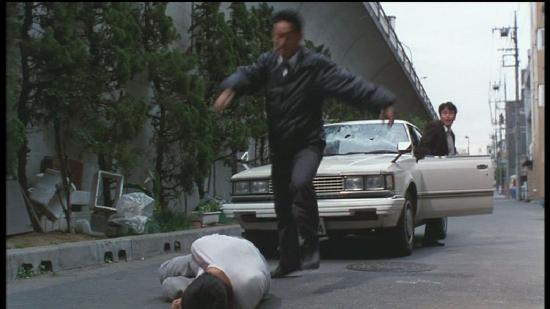
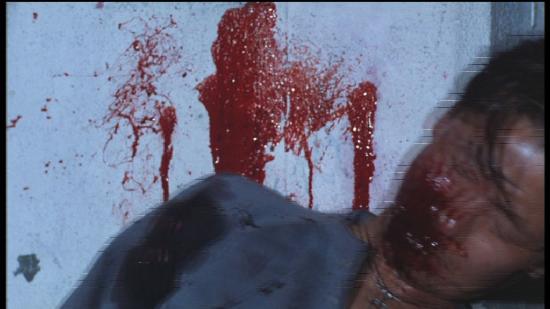
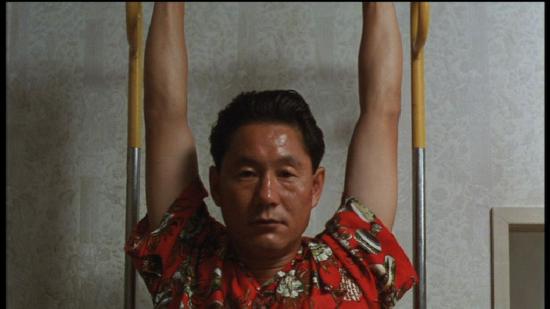
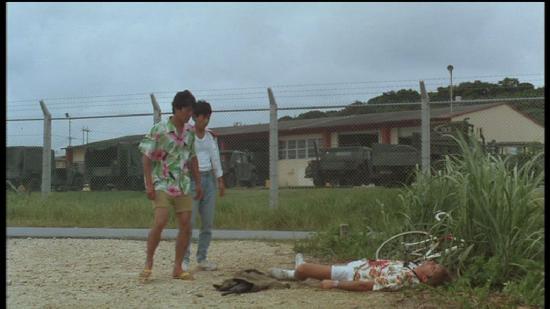
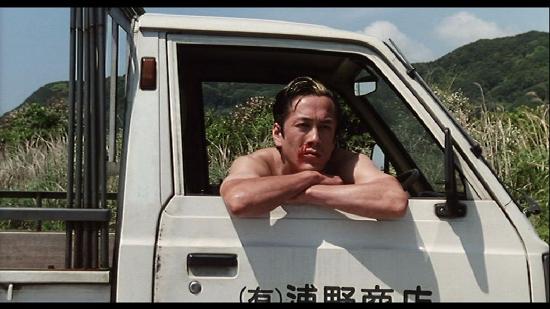
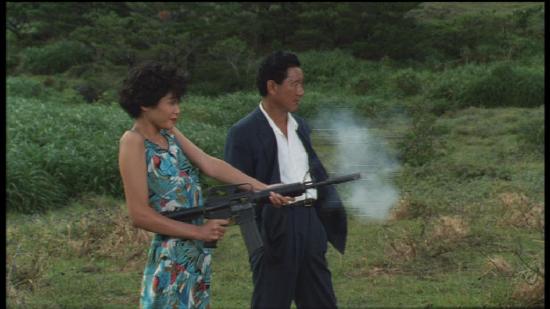
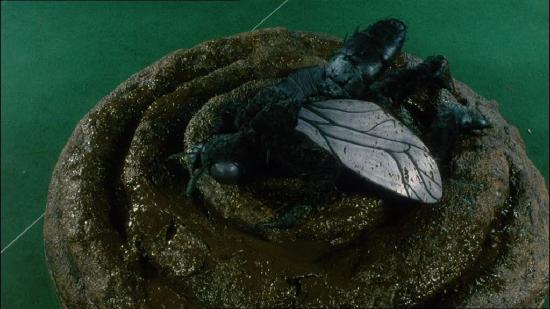
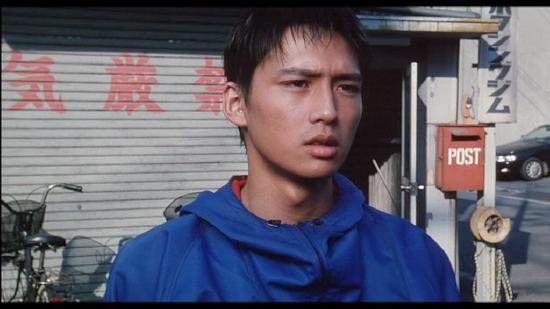
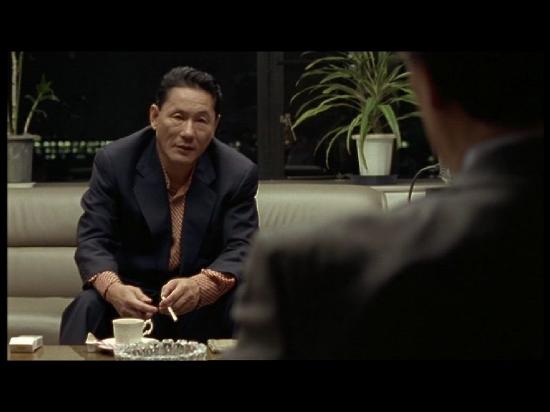
Your Opinions and Comments
Be the first to post a comment!